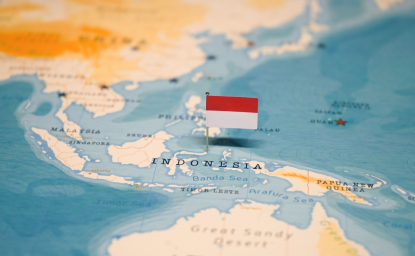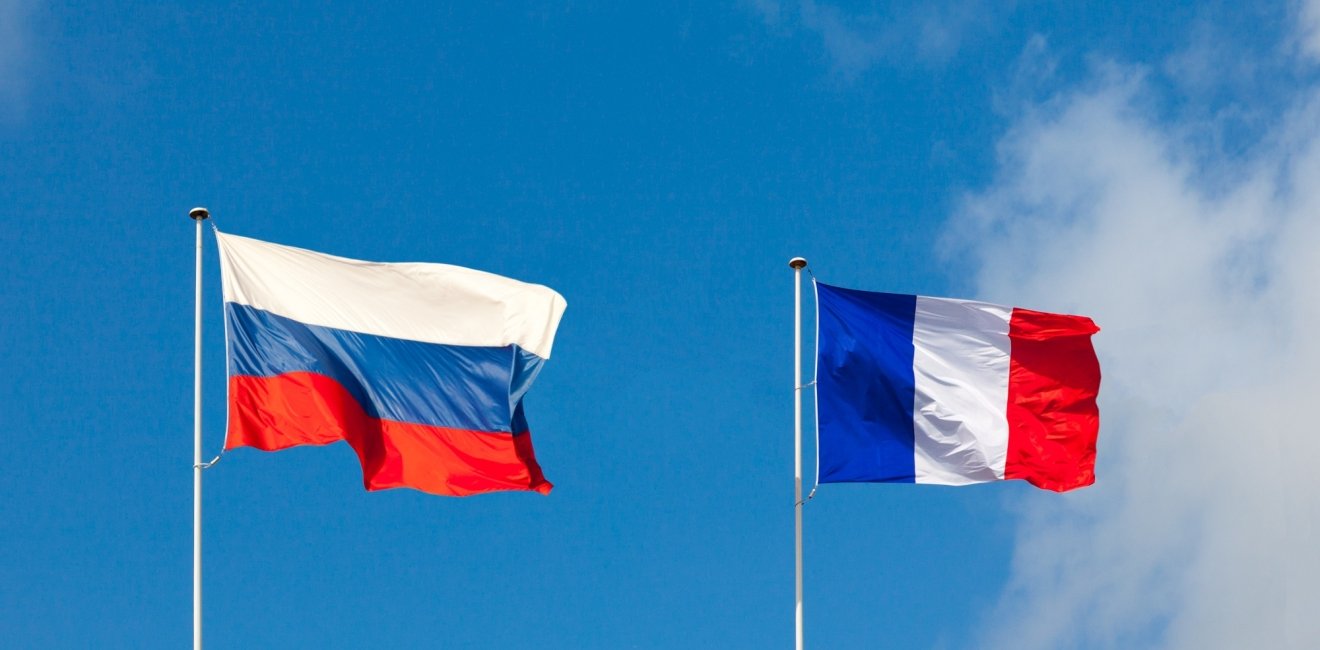Macron's Attempt to Persuade Putin
French President Emmanuel Macron's meeting in Moscow with his Russian counterpart Vladimir Putin reflects his firm conviction that the European Union must assume the leading role in shaping a stable European security order in the 21st century. For that reason, Macron has seized on France's EU presidency in the first half of this year to seek a diplomatic solution to the Ukraine crisis that threatens to become the gravest military challenge since the end of the Cold War. Ever since he was elected five years ago, Macron has sought to establish a personal rapport with Putin in the belief that Europe will only be able to achieve lasting peace on its continent by building greater trust and cooperation between Moscow and the West. With the United States shifting its focus toward Asia in a geopolitical confrontation with China, Macron believes it is more important than ever for Europe to become master of its own fate and reduce its security dependency on outside powers, including its friend and protector for more than seven decades, the United States.
Macron's diplomatic intervention at this stage of the Ukraine crisis -- with more than 100,000 Russian troops menacing its borders -- was welcomed by Putin, who said they shared "a common concern about what is happening in the security sphere in Europe." At the start of their talks inside the Kremlin, Putin personally thanked Macron for his visit and said he appreciated his approach to resolve the Ukraine crisis by providing equal security in Europe on the basis of "a serious historical perspective." Macron responded that he was interested not just in avoiding war but building "trust, stability, and visibility." Before leaving for Moscow and Kyiv, where he will see President Zelensky on Tuesday, Macron said in a French newspaper interview that "the geopolitical objective of Russia today is clearly not Ukraine, but to clarify the rules of cohabitation with NATO and the EU."
During the course of several interviews I conducted with Macron for a book about his vision of the world, we discussed his frequent and flattering overtures to Putin, which seemed fruitless at the time. Knowing that Putin was enthralled by czarist history, Macron invited him to Versailles as the first state visitor of his presidency. Macron told me he did so because the West could not afford to alienate Russia, regardless of Putin's monstrous transgressions, because Moscow would then be compelled to embrace China and isolate Europe. He said he believed that Putin could eventually be persuaded to adopt a more pro-European posture in a new era of big-power rivalry because "first of all, he is a son of Saint Petersburg" -- a reference not just to Putin's hometown but to its historical links to Western history and culture. When I replied that perhaps Putin was more of a son of the KGB than of his native city, Macron was silent for a few moments, then said "we'll see."
William Drozdiak, Global Fellow and Author of "The Last President of Europe: Emmanuel Macron’s Race to Revive France and Save the World"
France's Claim to European Leadership
With a Russian invasion of Ukraine imminent, French President Emmanuel Macron flew to Moscow on February 7, 2022 to meet with Vladimir Putin. The stakes are high. Developing a meaningful diplomatic process would enable Putin to abandon—or at least delay-- plans for an invasion of Ukraine, without losing face. It would also demonstrate that Macron’s quest for a specifically European role in global affairs is not a mere chimera. Finally, it would save Ukraine from a possible invasion.
The means of accomplishing all these things would presumably be a return to the Normandy process, which involves Russia, Ukraine, France and Germany. The advantage is that it is purely European and facilitates direct contact between Russia and Ukraine. An agreement would probably hinge on recognizing the special status of eastern Ukraine territories under Russian-backed separatist rule. Progress under this format might provide a justification for Putin to deescalate military preparations. Macron’s forthcoming visit to Ukraine obviates the charge that Macron is negotiating the fate of Ukraine over the heads of the Ukrainians (a kind of Munich scenario). Not only would a negotiation process help free Russia from its road to war but it would also allow the United States to escape from its relatively inflexible position which does not provide Putin much of a way out.
Macron’s initiative is risky. At a time when France holds the six-month rotating presidency of the European Council, the results will determine whether Europe can play a global role and the credibility of France’ efforts to further European strategic autonomy. Success would also strengthen France’s claim to European leadership at a time when Germany is barely visible. French presidential elections take place in April. A diplomatic success will boost Macron’s reelection prospects whereas failure could jeopardize them. The fact that the discussions lasted four hours and that Macron and Putin agreed to talk after the former’s visit to Kyiv may indicate some Russian willingness to continue negotiations.
Steven Philip Kramer, Global Fellow
Authors

Author "The Last President of Europe: Emmanuel Macron’s Race to Revive France and Save the World"

Author "Jews, Muslims, and the French Republic" (Cambria: 2023)

Global Europe Program
The Global Europe Program is focused on Europe’s capabilities, and how it engages on critical global issues. We investigate European approaches to critical global issues. We examine Europe’s relations with Russia and Eurasia, China and the Indo-Pacific, the Middle East and Africa. Our initiatives include “Ukraine in Europe”—an examination of what it will take to make Ukraine’s European future a reality. But we also examine the role of NATO, the European Union and the OSCE, Europe’s energy security, transatlantic trade disputes, and challenges to democracy. The Global Europe Program’s staff, scholars-in-residence, and Global Fellows participate in seminars, policy study groups, and international conferences to provide analytical recommendations to policy makers and the media. Read more

Explore More
Browse Insights & Analysis
The OSCE is a Good Value for America

Israel Escalates Attacks in Gaza: What’s Next?


